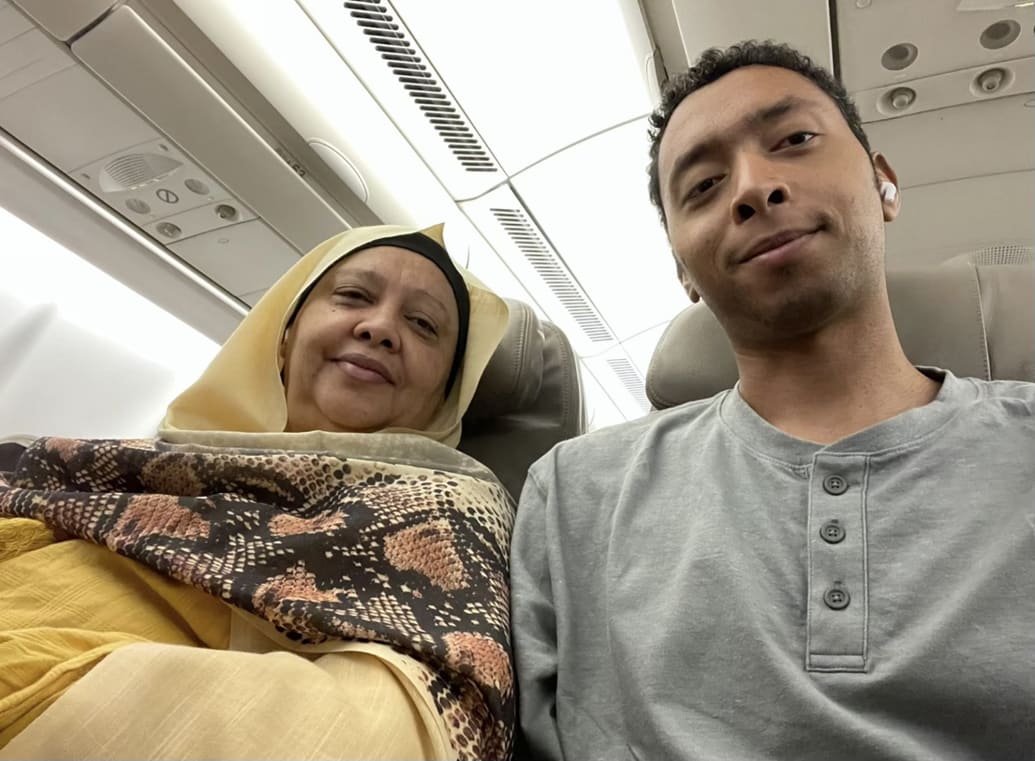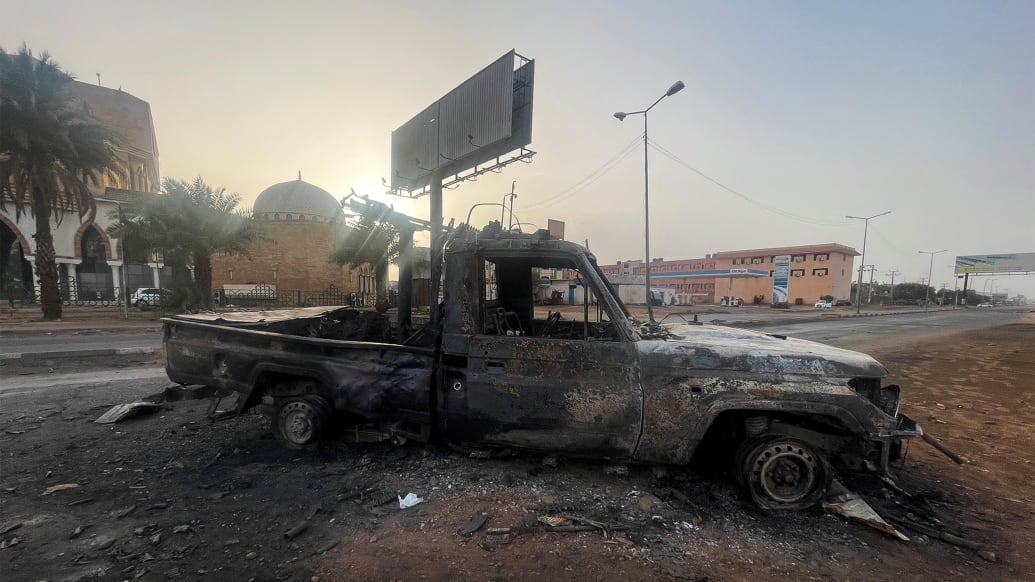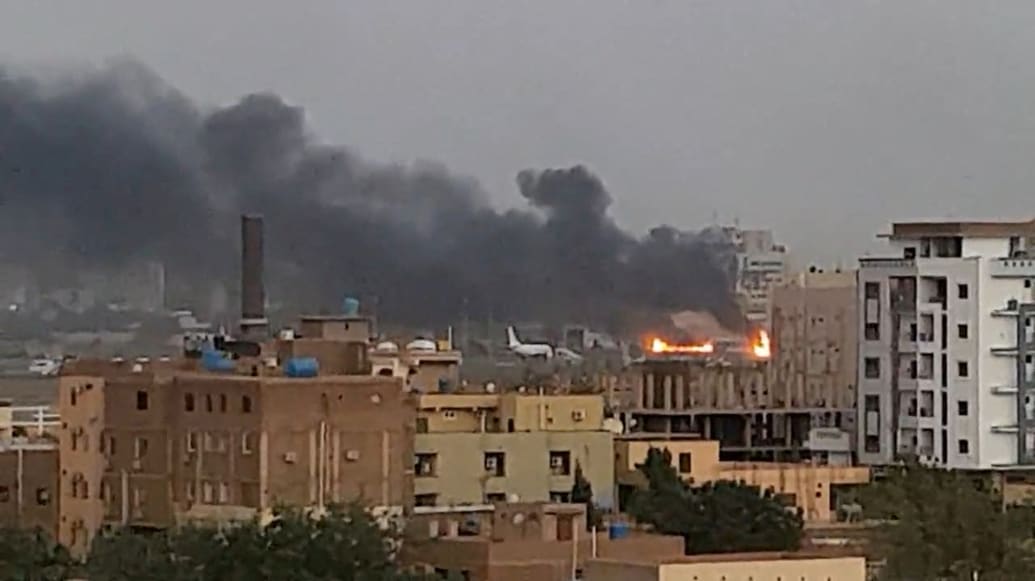An American family of six from Chicago is desperately attempting to escape the violent conflict in Sudan, which broke out only hours after they arrived in the country to visit relatives.
Engineer Azza Hamad arrived in Omdurman near the capital city of Khartoum with her husband, her two young children, her mother, and her brother on April 15. That same day, bloody clashes broke out between the Sudanese army and the Rapid Support Forces (RSF), former allies who worked together to topple the Sudanese government in 2021. Tensions that built up in the aftermath of the coup have now erupted into a power struggle that has killed some 500 people so far—including two American citizens.
“Everything was normal when they first arrived,” Azza’s father, Abubakr Hamad, told The Daily Beast from his home in Chicago. When his wife, Hanan, first called him at 8 a.m. and told him she had heard rumblings that “something might happen” in Sudan, he didn’t think it was cause for alarm, and told her to let his grandkids sleep in. “But then I heard from a friend that there is some movement in town—for the last two weeks, there were some little [clashes] here and there, but it seemed to be a serious time.”
Shortly afterwards, all hell broke loose.
“Jets started flying off here and there, and the kids were so scared. They don’t know what’s going on… They can hear the sound of bombs here and there and even from their place they could see the jets flying over their heads and towards the target from the air base,” Abubakr said.
Smoke rises from the tarmac of Khartoum International Airport.
Abdullah Abdel Moneim via Reuters
From that moment onwards, the father says he’s been talking to the family “every single hour”—trying to do whatever he can from afar to help facilitate their escape out of the country.
The family, including the four-year-old and one-year-old kids, were forced to shelter in place at the home they were staying in for roughly 10 days as the horror of the conflict played out around them.
“There was nothing they could do. All they could do was wait for the embassy,” Abubakr said, adding that after reaching out to the U.S. embassy, they were told only that they should shelter in place until further instruction.
When the U.S. embassy staff was evacuated on Sunday, the family “hoped they would come and evacuate everybody… they saw other embassies starting to evacuate their citizens, like Italy, Germany, Saudi Arabia. They kept their fingers crossed that they would be evacuated.”

Courtesy Mihira Hamad
But that didn’t happen, even after a fragile ceasefire was declared on Monday, during which “there were a lot of violations and no one moved out. Some people got shot while trying to get water because there was no running water in certain areas,” the father said.
Instead, the family was told they could attempt to reach the city of Port Sudan at their own risk in order to evacuate. “But they could not do it because they have to cross Khartoum where the fighting is really heavy,” Abubakr said.
Eventually, the family decided they had to take the plunge and attempt to escape to Egypt. After boarding a public bus for a long journey towards the border, they arrived in the Sudanese city of Wadi Halfa on Wednesday.
‘It is not enough’
But their problems haven’t ended there. Halfa has been overwhelmed with an influx of thousands of people attempting to flee the country, and their family is currently trying to get all the documentation needed in order to cross the border into Egypt.
“The border is chaotic, with so many people and so many requirements to cross,” Abubakr, who had just spoken with his family before his interview with The Daily Beast, said. “It will take at least another day.”

A burned vehicle is seen in Khartoum.
El-Tayeb Siddig/Reuters
Roughly 16,000 Americans citizens were in Sudan when the clashes first began, according to the U.S. State Department. Though several countries have been able to safely coordinate the evacuations of their citizens, it appears that many Americans, like the Hamads, have been left to figure it out on their own.
“There are options to depart Sudan, but you must decide the safest and best method of departure for yourself and your family. We cannot guarantee your safety in movement,” an alert from the State Department released Tuesday said.
Although the State Department had said they could not facilitate the evacuation of private citizens in the early days of the conflict, that could soon change. U.S. officials are reportedly hoping to send consular teams to Port Sudan to assist with the evacuation, and are reportedly working to assist and advise some private citizens on the best options available.
But for Abubakr, who says he hasn’t had more than three hours of sleep a night since the conflict broke out, “I don’t think [the U.S.] did enough. They did a great job evacuating the embassy staff, which was very quick and nothing happened. That was a good job, but they should do a good job on the ground… They should do more. I don’t think they have a very clear plan like other countries, other countries had a plan and took out their citizens.”
For now, the father is doing everything he can for his family, including reaching out to members of Congress and urging them to help guarantee their safe return.
“I’m left here at home with my son, a college student, it’s his final semester and he’s doing final exams,” he told The Daily Beast. “I see him panicking, and he doesn’t want to go to school, he wants to stay at home watching the news.”
Meanwhile, Abubakr is staying in close contact with his daughter Azza, who is trying to stay strong despite occasionally breaking down on the phone with her father. She always makes sure, however, that her children never see her in tears, Abubakr said.
“I keep talking to …my grandson … and sometimes he wants to scream, he wants to cry,” Abubakr said. “I keep telling him, you’re just on a road trip.”

